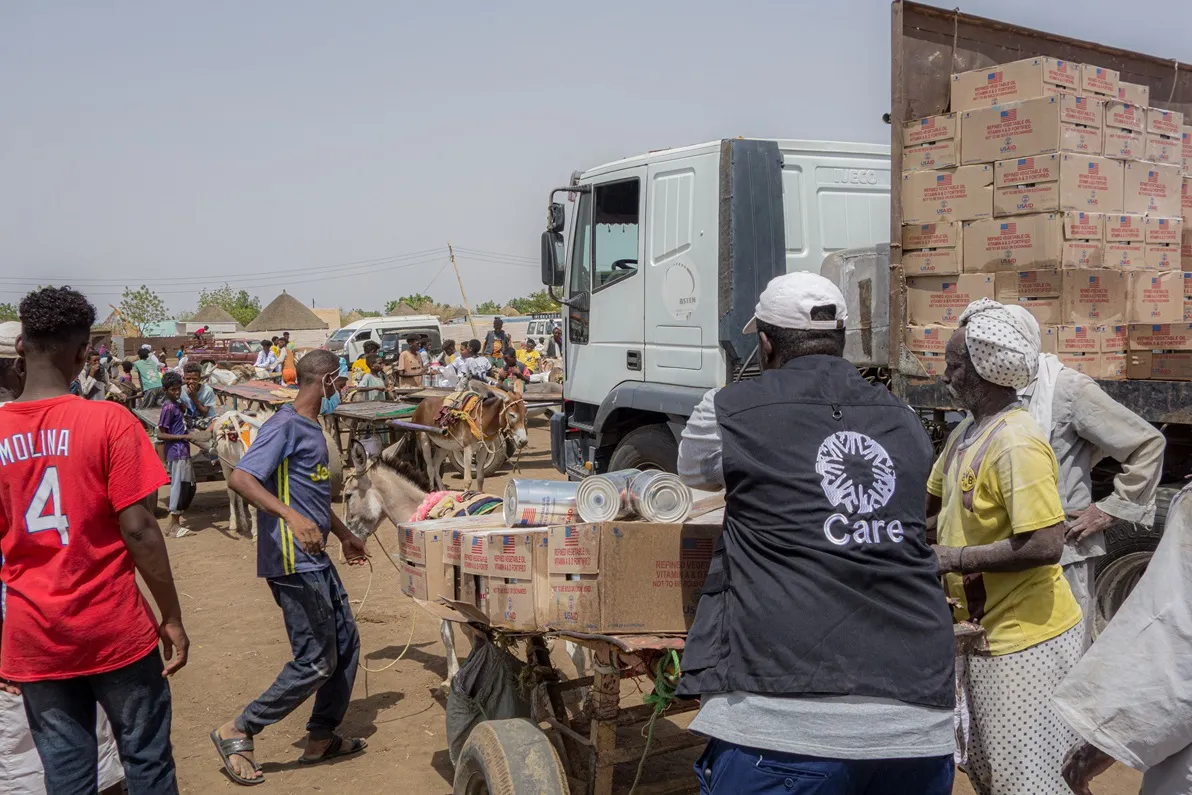June 27, 2024 – Tens of millions of Sudanese – across the country – are paying the cruel price of more than 14 months of senseless armed conflict. In addition to unprecedented displacement, Sudan faces historic levels of starvation, and a war on women and girls with evidence of the pervasive use of sexual violence as a weapon of war, according to the UN.
“The stories I hear from my CARE colleagues and partners supporting starving people across Sudan – especially women and girls – is absolutely heartbreaking,” said Abdirahman Ali, CARE Sudan Country Director. “They speak of people forced to eat leaves and soil to survive; of stranded individuals in El Fashir with nothing to feed themselves with because food commodities have been destroyed, because aid is prevented from entering affected areas, or because prices have skyrocketed; and of young women displaced by the fighting sharing that they were viciously attacked during their grueling journey under unbearable heat.” He added: “Aid workers are not able to deliver the much-needed food and other essential items due to a poor and highly volatile security situation, access issues, and a funding gap.”
Dr. Hawa* works in a medical center supported by CARE in East Darfur, where tens of thousands have fled the violence in El Fashir. He shared: “It is deeply concerning to witness so many malnourished children and unaccompanied minors arriving every day.”
As a result of the escalating violence – which has spread to most of Sudan’s 18 states – and the resulting displacement and economic shocks, more than half the population (25.6 million people) are surviving on a highly limited diet, with 8.5 million people enduring extreme food shortages, and 755,000 facing near-total lack of food and a complete exhaustion of their coping capacities. The scale and scope of this man-made emergency in Sudan makes it the world’s largest food crisis currently, and likely one of the most severe in decades. Making matters worse: April to September is traditionally a period of reduced agricultural output in Sudan ahead of the next harvest.
CARE calls for an immediate ceasefire and unhindered humanitarian access to enable a lifesaving humanitarian response at scale. This response must include age and gender responsive malnutrition treatment, cash assistance, food, livelihood support, as well as healthcare – including sexual and reproductive health, and gender-based violence services. We also call on the international community to move with speed to fully fund the Humanitarian Response Plan for Sudan (currently funded at only 17.3% so far for 2024).
One of the most effective ways to reach those most at risk – especially women and girls who face unique and deadly risks amidst conflict-induced hunger crises, including the risk of gender-based violence – is to enable local women-led organizations (WLOs) to scale up their work. This implies funding local WLOs and promoting their full, equal, meaningful and safe participation and leadership in humanitarian coordination structures at all levels of the response.
The world must not look away from this unconscionable suffering. The time to act is now.
*Name changed to protect identity.
For media inquiries, please contact usa.media@care.org.

